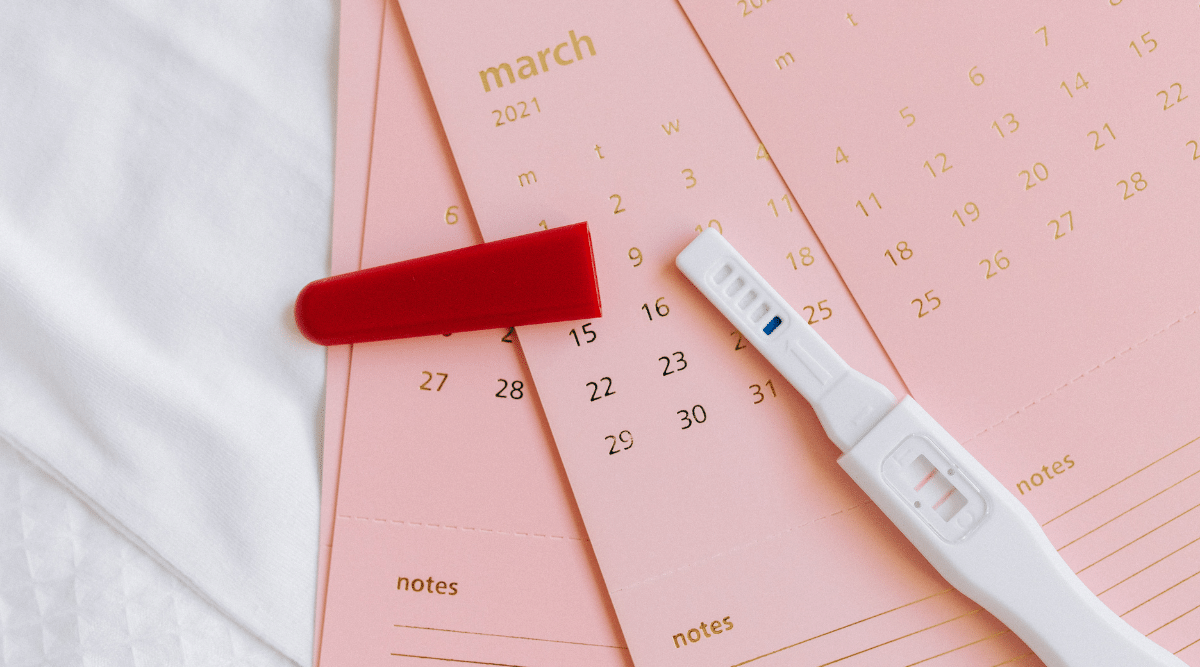You probably don’t want to wait a second longer than necessary to discover whether you’re pregnant or not. But knowing exactly when to take a pregnancy test can mean the difference between seeing an accurate result the first time or feeling even more confused than before.
Here are 4 things you need to know when you‘re wondering “How early can you test for pregnancy?”

1. Testing too early can give you the wrong answer
The first thing to know about when to take a pregnancy test is that earlier is not always better. The number one cause of incorrect results from a home pregnancy test is testing too early. Pregnancy tests measure a pregnancy hormone made by the placenta, called human chorionic gonadotropin (hCG).
If you test too early, you run the risk of getting a confusing “false negative” result. In this case, your body IS already growing a baby, but the hCG level in your urine is low. There’s not enough for the test to pick it up.
If you tend to drink a lot of water your chances of getting a false negative result from testing too early, increase. This is because high volumes of water dilute your urine – a good thing ordinarily but unhelpful in this case.
2. The best time to get an accurate result is a week after your period was due
 If you want to be sure of getting the correct answer the first time, when is the best time to test? Testing a week after your period is due allows time for the hCG hormone to rise and give you a clearly positive result, or, a genuinely negative one. In the meantime, you might be looking out for other early signs of pregnancy.
If you want to be sure of getting the correct answer the first time, when is the best time to test? Testing a week after your period is due allows time for the hCG hormone to rise and give you a clearly positive result, or, a genuinely negative one. In the meantime, you might be looking out for other early signs of pregnancy.
What if you just can’t wait? Some pregnancy tests can pick up the hCG hormone earlier, for example, five days before your period is due. For this to be effective, make sure you check the instructions for your particular test and follow them to the letter.
3. If you decide to test early, do it first thing
If you’re desperate to know when to take a pregnancy test, there is a way to increase your odds of getting an accurate answer.
Taking the test with your very first bathroom visit of the morning ensures your hCG hormone levels are at their highest. This is because, after sleeping all night, your urine is more concentrated.
4. Different types of tests work best at different times
Like we said – urine tests are great when you’re testing after your period is due. You can get a clear answer straight away and process it in the privacy of your own home.
In comparison, blood tests can be accurate earlier. They’re more sensitive and blood contains higher levels of hCG hormone than urine. This means your midwife or GP could give you a blood test as early as six to ten days after ovulation.
In addition, your midwife or GP can order two different types of hCG blood tests. A qualitative hCG blood test simply gives a yes or no answer as to whether you are producing hCG, like a urine test.
A quantitative hCG blood test gives a specific level of hCG in the blood. This can help to show whether your hCG levels are within normal ranges, the information you might find particularly helpful if you have experienced miscarriage.
However, rather than heading off for a blood test before their period is due, most women find it simpler to wait a few days longer until they can test at home, before visiting their midwife or GP.
In fact, any time you have questions or worries about when to take a pregnancy test, a good place to start is a chat with your maternity care provider.

Reference List
PBB aims to keep you informed with the latest research-based information. Check out our reference list used in the creation of this article.
Page published on 3rd March 2022


Recent Comments